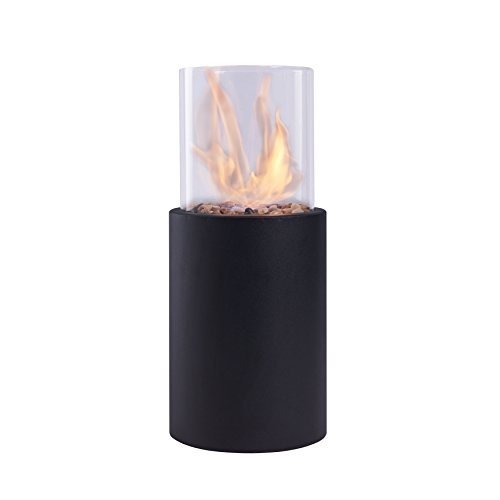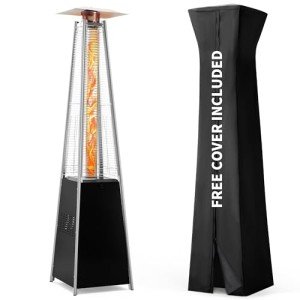fireplace-near-me3180
fireplace-near-me3180
See What Fireplaces And Stoves Tricks The Celebs Are Using
The Comprehensive Guide to Fireplaces and Stoves
Fireplaces and stoves have been important to human civilization for centuries, working as a source of warmth, light, and comfort. These appliances come in various forms and have developed for many years, catering to diverse preferences and technological advancements. This short article offers a useful introduction of fireplaces and stoves, highlighting their types, benefits, upkeep tips, and setup considerations.
Types of Fireplaces
The world of fireplaces is rich and varied. Here are the most typical types:
-
Wood-Burning Fireplaces:
- Traditional and lovely.
- Requires experienced wood and regular maintenance.
- Produces an enjoyable fragrance and crackling sound.
-
Gas Fireplaces:
- Offer convenience and ease of usage.
- Offered in vented and vent-free options.
- More efficient and cleaner than wood-burning choices.
-
Electric Fireplaces:
- Provide atmosphere without the need for a chimney.
- User-friendly with push-button control alternatives.
- Can be used as an extra heat source.
-
Pellet Stoves:
- Use compressed wood pellets as fuel.
- Extremely efficient and ecologically friendly.
- Often equipped with thermostats for temperature control.
-
Ethanol Fireplaces:
- Utilize bioethanol fuel, making them portable.
- Do not require venting, which enables flexible placement.
- Produce a realistic flame with minimal smoke.
-
Outdoor Fireplaces:
- Designed for outdoor settings; can be wood or gas-burning.
- Great for entertaining and enhancing yard visual appeals.
- Typically constructed from stone, brick, or metal.
Advantages of Fireplaces and Stoves
Integrating a fireplace or stove into a home provides many benefits:
- Aesthetic Appeal: Fireplaces work as striking focal points in any room, including heat and character to home design.
- Increased Property Value: Homes with practical fireplaces tend to have higher resale values.
- Energy Efficiency: Modern fireplaces and stoves are created to be more energy-efficient, which can cause reduced heating expenses.
- Backup Heating Source: In case of power outages, wood-burning and gas fireplaces can work as necessary heating sources.
- Versatile Heating Solutions: Different types of fireplaces accommodate numerous heating requirements and way of lives, from relaxing ambiance to efficient heating.
| Kind of Fireplace/Stove | Fuel Source | Efficiency Rating | Maintenance Level |
|---|---|---|---|
| Wood-Burning | Wood | Moderate | High |
| Gas | Natural gas/LP | High | Low |
| Electric | Electricity | High | Very Low |
| Pellet | Wood pellets | High | Moderate |
| Ethanol | Bioethanol | Moderate | Low |
| Outdoor | Wood or gas | Moderate | Varies |
Upkeep Tips
Proper maintenance extends the life of fireplaces and stoves, making sure security and efficiency. Here are some important ideas:
-
Regular Cleaning:
- Wood-burning fireplaces must be cleaned after a complete season of use to eliminate soot and creosote.
- Gas fireplaces need regular assessment of the burner and vents.
-
Regular Inspections:
- Have chimney sweeper carry out yearly assessments to identify clogs or structural damage.
- Inspect the seals and gaskets on gas units to avoid leaks.
-
Fire Safety:
- Install smoke and carbon monoxide gas detectors in homes with fireplaces or stoves.
- Keep a fire extinguisher near the fireplace or stove for emergencies.
-
Usage Quality Fuel:
- For wood-burning units, always utilize skilled wood; avoid dealt with or painted wood.
- When using pellets, guarantee they are stored appropriately to avoid wetness absorption.
-
Manage Airflow:
- Keep vents and ducts clear to promote reliable ventilation and airflow.
- Think about using glass doors or screens to minimize particles and ash in the home.
Installation Considerations
Installing a fireplace or stove needs mindful consideration of numerous aspects:
-
Location:
- Choose a location that enables correct clearance and ventilation.
- Think about the design of your home and the benefit of natural heat circulation.
-
Building Regulations and Permits:
- Check regional regulations relating to installations and required authorizations.
- Engage an expert to make sure compliance with security standards.
-
Fuel Type:
- Evaluate your fuel choices based on schedule, cost, and environmental effect.
- If selecting gas, ensure existing gas lines can accommodate the new home appliance.
-
Ventilation:
- Proper venting is important for security and performance, especially for gas and wood-burning units.
- Seek advice from a professional to determine the best venting option.
-
Visual Consideration:
- Select a style that matches your home’s interior.
- Consider mantels, surround products, and colors that match your decoration.
FAQs
What is the very best kind of fireplace for heating?
Gas fireplaces are normally more efficient for heating, while wood-burning fireplaces offer more ambient warmth.
How typically should I clean my fireplace?
Wood-burning fireplaces should be cleaned up at least as soon as a year, while gas fireplaces need less frequent attention depending upon usage.

Can I set up a fireplace myself?
While some house owners may try DIY setup, it is advised to hire a professional to make sure security and compliance with building regulations.

Are electric fireplaces efficient?
Yes, electric fireplaces are extremely efficient and can act as effective supplementary heating sources, specifically in smaller areas.
What is the life-span of a fireplace?
The life expectancy of a fireplace differs depending on the product, type, and maintenance; nevertheless, a well-maintained wood-burning fireplace can last over 30 years.
Fireplaces and stoves remain classic features in homes, offering warmth and atmosphere. Comprehending the various types, advantages, and maintenance requirements can assist homeowners make notified choices about setup and care. With cautious planning and routine maintenance, these home appliances can enhance both the comfort and value of a home for several years to come.

